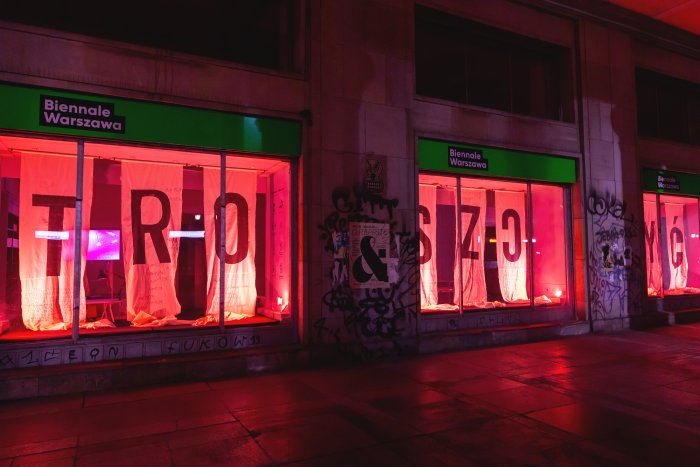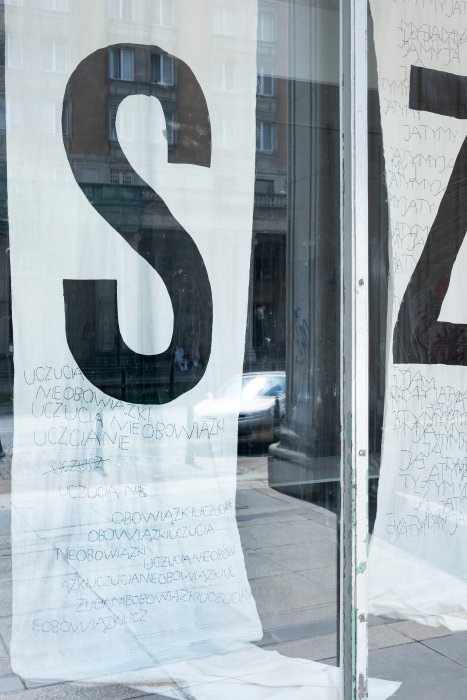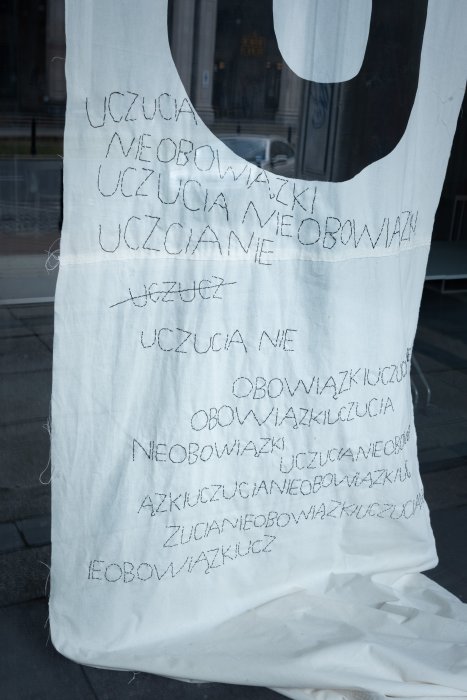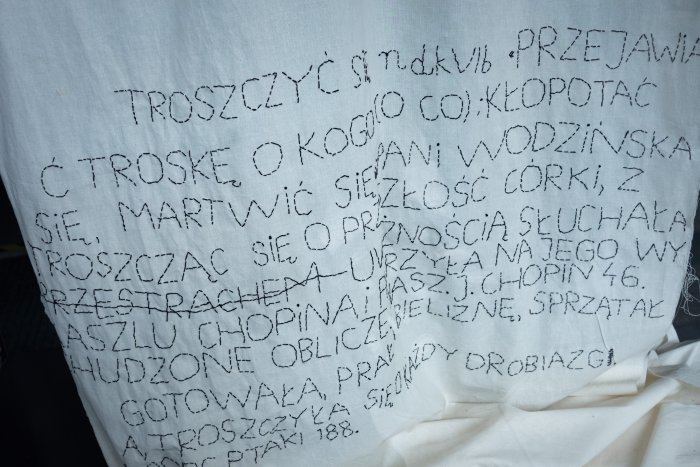C O N C E R N
C-O-N-C-E-R-N. CO-NCE-RN. To be concerned means to care for, to look after somebody, something, or yourself. The same Polish word troska can mean either care, or concern, worry and trauma. Can everyday martyrdom be replaced with mindfulness and devotion? In her new piece displayed in Biennale Warszawa front windows, Monika Drożyńska raises the issue of ethics and politics of care, as well as emotions related to care. You can view the work from 15 June until 22 July.
Huge, printed letters are visible probably from the sidewalk on Marszałkowska Street, but in order to read the embroidered word cloud, you need to come closer. A teeming mass of words is displayed across nine pieces of white canvas – some are crossed out; others are a mirror image of themselves. To be upset, worried, distressed, bothered, anxious, responsibilities not feelings, feelings not responsibilities.
The artist calls her technique "embroidery writing". This is a non-normative mode of writing that involves combining different formal orders and various communication circuits. Embroidery writing lies somewhere between a book and a conversation with another person, between founded knowledge and popular imagination, between mass language and chatting at home. How does language affect the expression of feelings? Is there room in science for emotions and reciprocity? What can we do to make care a feeling, and not a duty? Monika Drożyńska's "Concern" is an attempt to loosen up the limits of our language, which can help shake us out of the rut of habits and move the attention from the anxiety that accompanies care and concern, to tenderness.
Monika Drożyńska was a Biennale Warszawa resident in the programme "Covid-19. The World After the Pandemic" within which she was researching the language that creates the post-pandemic reality. In parallel to presenting the artist's work, Biennale Warszawa holds the Forum of Care Practices Let's plan a reproductive strike! which concludes the series "Care revolutions" whose curators raise the issues of social reproduction and strategies of resistance to the care crisis.




